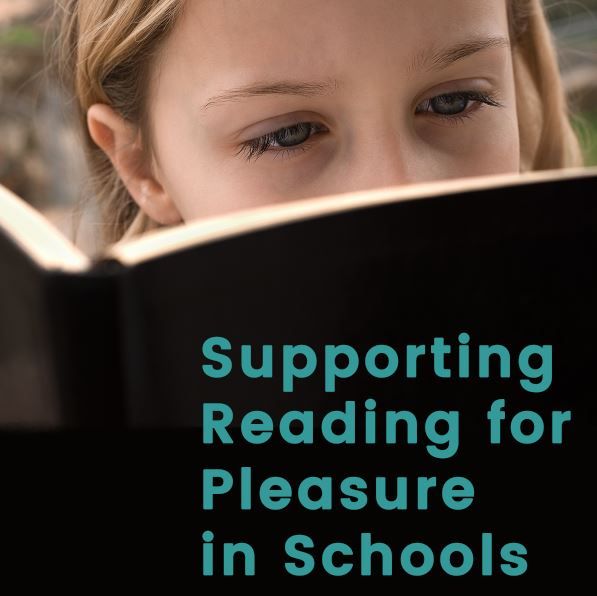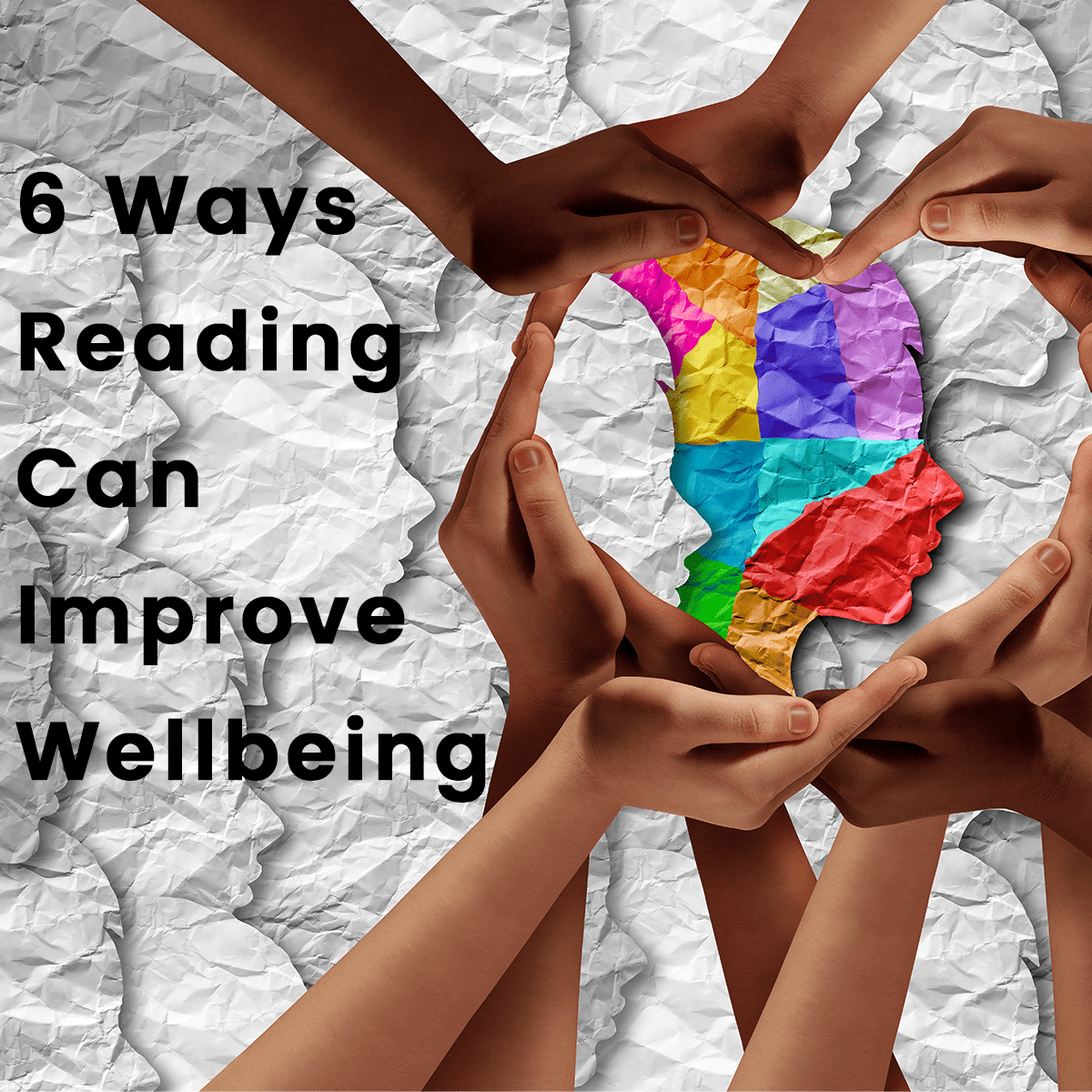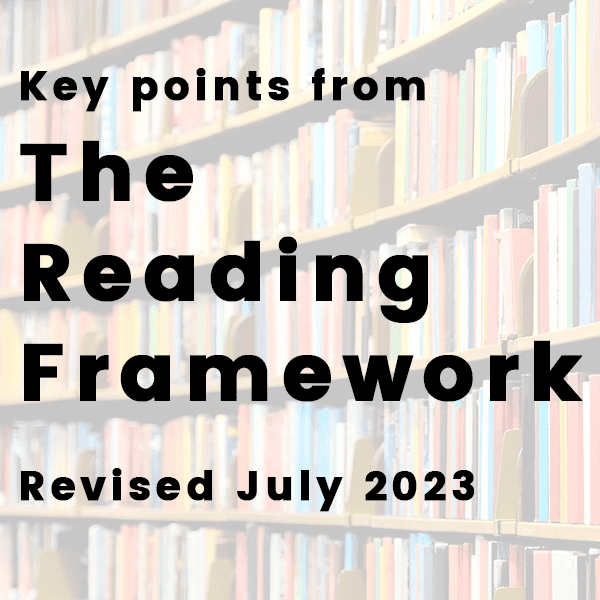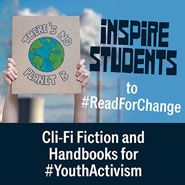Library Collections
-
Posted on: Feb 07, 2024
Developing a reading-for-pleasure culture in our school communities requires more than encouraging children to pick up a book and read right now. While this is a fantastic and worthwhile starting point, the ripple effect of nurturing avid readers who choose to read, rather than read because they are told to, goes far beyond the here and now so a whole-school approach is most likely to be successful.
Children who read for fun are more likely to be happy and successful in life. (The Reading Agency, 2023)
The benefits of reading for pleasure for children (and adults!) are widely heralded and strongly supported by extensive studies, compelling statistics, and irrefutable research...
-
Posted on: Jan 30, 2024
In 2023, 1 in 5 eight to sixteen-year-olds were identified as having a probable mental disorder.
(Mental Health of Children and Young People in England, 2023 — wave 4 follow up to the 2017 survey — NHS Digital)
Despite these concerning figures, mental health is still not given the attention it deserves. Just over one in three children and young people with a diagnosed mental health condition get access to NHS care and treatment, leaving the majority with little to no support.
Teachers and librarians can play a pivotal role in aiding young people experiencing mental health difficulties, especially because reading literature can be an effective tool to support and improve mental health.
-
Posted on: Sep 27, 2023
The government’s Reading Framework first published in 2021 has now been updated. A considerable amount of new information has been provided in the 2023 update. The document originally focused on Reception and key stage one, but now contains advice for developing reading in key stage 2 and 3. The introduction to the document states that its key objective is “to help schools to meet the expectations set out in the Early Years Foundation Stage (EYFS) statutory framework and the national curriculum.” At over 170 pages long, it is a lengthy read containing detailed advice divided into thirteen sections. The following overview highlights its key content and implications for the teaching of reading, together with just the right books to help you meet these new requirements.
&
-
Posted on: Mar 09, 2023
Why is reading in Year 7 important?
Moving from primary school to secondary is a huge change for eleven-year-olds. It is also a pivotal moment in defining their reading habits. With the beginning of secondary school comes new distractions and motivating students to read can become challenging.
Fostering a love of reading has a huge impact on students’ progress and overall socio-economic success in life. The Reading Agency states that “children who read books often at age 10 and more than once a week at age 16 gain higher results in maths, vocabulary and spelling tests at age 16 than those who read less regularly.” Reading regularly also helps concentration levels, improves writing skills, and expands vocabulary.
But it’s not just about providing students with the crucial ability to read in order to aid fut
-
Posted on: Mar 06, 2023
After laying the foundations of reading with phonics, nothing captures the attention of a newly independent reader more than the lure of a great book. Making sure the very best books make it into your pupils’ hands will not only benefit them, it will also make your job of inspiring young readers and boosting progress in reading much easier.
Making informed choices about the books you use in English lessons and fill your library shelves with will also help you to answer questions that might come up in your next Ofsted deep dive. Whilst the DfE Reading Framework emphasises the importance of ensuring children are given high-quality texts, there is little guidance on what a high-quality text looks like or how the calibre of a text can be recognised and measured. Being able to identify quality literature will ensure children are exposed to the very best, most current fiction, including titles that reflect modern society and represent more diverse authors, rather than relying on a stagnant d
-
Posted on: Jan 18, 2023
This year we are excited to launch our very own Badger Book Awards, designed to encourage reading for pleasure and champion incredible books. We’ve shortlisted fifty titles from 2022, splitting them into the top 10 titles for Years 7 to 11.
Each vote submitted gives you a chance to win £500 worth of books for your secondary school! The author of each winning category will also be given £500 worth of books to donate to a UK school of their choice.
VOTING ENDS SOON! 3Oth June 2023
-
Posted on: Sep 24, 2020
Welcome Back
It’s fantastic to see children back in school after so long a break, and we know how hard staff have had to work to implement all the new (and changing) procedures to get to this stage.
Here at Badger Learning we have been working on updating our products to make sure we have what you need to ensure children are supported in their reading journey and with their wellbeing. We know that the pandemic has put a huge strain on some children’s mental health and wellbeing and as much as we hope that will all be eased now they are back at school, some will need additional resources. Primary teachers may want to take a look at our PSHE Through Stories Collection. For secondary schools, our Minding Your Mental Health and Supporting Your
-
Posted on: Feb 17, 2020
“We need to live in a culture that values, respects, looks up to and idolizes women as much as men.” Emma Watson
Happy International Women’s Day! March the 8th is a day for celebrating the many achievements of women across the globe. It is also a day to highlight issues that still need to be solved in order to accomplish equality. The #IWD2020 theme is #EachforEqual, calling for each of us to take control of our actions and be held accountable in a world where “we can actively choose to challenge stereotypes, fight bias, broaden perceptions, improve situations and celebrate women's achievements.”
2019 felt like a mixture of achievements and failures for women’s rights. Whilst Saudi Arabia granted women the right to drive without a male chaperone, Turkey announced the ‘marry-your-rapist’ law. In Finland women dominated the top political spots, including the youngest Prime Minister ever elected, yet the 2020 Sex and Power Index from the Fa
-
Posted on: Jan 30, 2020
Climate conversations are never simple, with many people finding it hard to visualise a world of climate chaos or simply refusing to do so. That is why discussions through literature are so important – they bring the pandemonium to life and aid in envisaging a ravaged world, unlike anything we have seen before.
It feels like we are approaching the Golden Age of Young Adult ‘cli-fi’ (climate change fiction). Our worldwide news is constantly awash with ecological disasters and the beginning of 2020 has been no different with the devastating bush fires in Australia horrifying people all over the world. Although gaining popularity, very few ‘cli-fi’ novels actually deal directly with climate change but rather discuss the after-effects. Our No Planet B collection strives to raise awareness of the irreversible damage we are causing, a collection to shock but also to inspire – books that act as literary catalysts.
No Planet B contains various ecological dystopias,
-
Posted on: Apr 24, 2018
Gloria SteinemI want to start this blog post by celebrating all that women have achieved over the past year. 2017 was a big year for activism and speaking out against sexism which has led to powerful movements fuelling change, such as #TimesUp and #MeToo. This has given many women the courage to speak out against sexual misconduct across various industries. 2017 also saw a big push in promoting women in STEM, more female politicians on the world's stage than ever before, as well as F1's banishment of grid girls.
Despite all of this progress, we are still a long way from accomplishing the original aim of IWD, which is to achieve gender equality. Current statistics show that the gender gap will not close until 2186, women are five times more likely to be sexually assaulted than a man, and











